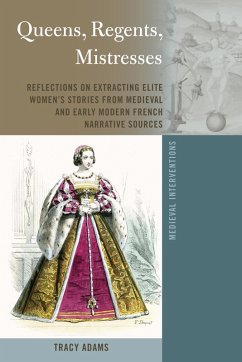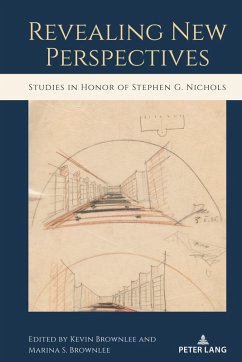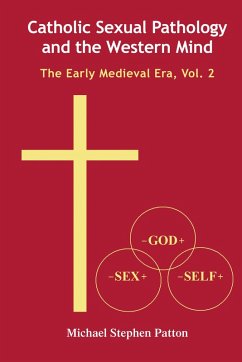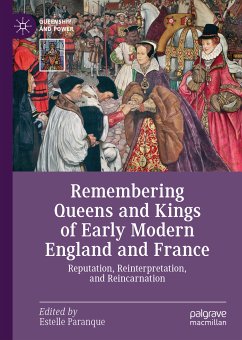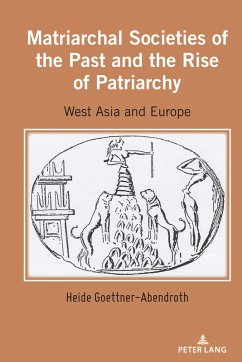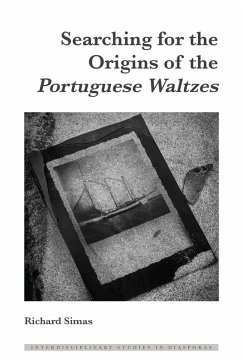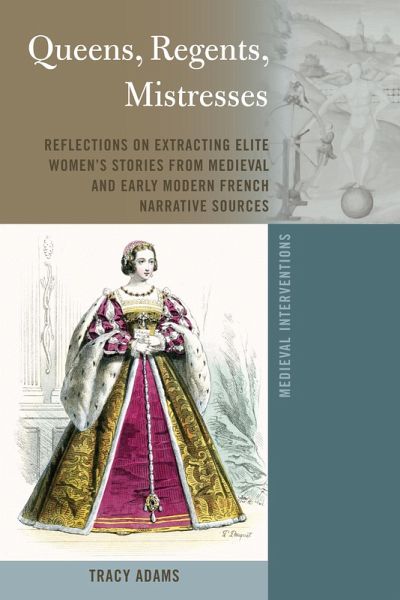
Queens, Regents, Mistresses (eBook, PDF)
Reflections on Extracting Elite Women's Stories from Medieval and Early Modern French Narrative Sources
Versandkostenfrei!
Sofort per Download lieferbar
Statt: 84,95 €**
69,95 €
inkl. MwSt.
**Preis der gedruckten Ausgabe (Gebundenes Buch)
Alle Infos zum eBook verschenkenWeitere Ausgaben:

PAYBACK Punkte
35 °P sammeln!
This book is a series of case studies reflecting on narrative primary source representations of queens, regents, and royal mistresses in medieval and early modern France. Examining stories of famous women, including Isabeau of Bavaria, Valentina Visconti, Agnès Sorel, Diane de Poitiers, Eleanor of Austria, and even Anne Boleyn, who spent her formative years at the French court, author Tracy Adams takes unprovable or false anecdotes as a point of departure and follows them back to their primary sources.When readers open a work of history, they have the right to assume that what they find on th...
This book is a series of case studies reflecting on narrative primary source representations of queens, regents, and royal mistresses in medieval and early modern France. Examining stories of famous women, including Isabeau of Bavaria, Valentina Visconti, Agnès Sorel, Diane de Poitiers, Eleanor of Austria, and even Anne Boleyn, who spent her formative years at the French court, author Tracy Adams takes unprovable or false anecdotes as a point of departure and follows them back to their primary sources.
When readers open a work of history, they have the right to assume that what they find on the pages is "historically true," in other words, that it accords with primary sources. And yet scholars studying women of the medieval and early modern periods know all too well how often unprovable or even false anecdotes, frequently scandalous or misogynistic, pass for true. Typically deriving from secondary sources that themselves rely on secondary sources, these anecdotes are passed along in a self-reflexive feedback loop.
The central argument of Queens, Regents, Mistresses is that, taken on their own, primary sources cannot be used as straightforward vehicles of truth. Each of Adams' case studies therefore lays out the process of engaging with these sources. Revised interpretations leave readers with new perspectives on these famous women, and also the bibliographical information necessary to turn to the primary sources for themselves.
When readers open a work of history, they have the right to assume that what they find on the pages is "historically true," in other words, that it accords with primary sources. And yet scholars studying women of the medieval and early modern periods know all too well how often unprovable or even false anecdotes, frequently scandalous or misogynistic, pass for true. Typically deriving from secondary sources that themselves rely on secondary sources, these anecdotes are passed along in a self-reflexive feedback loop.
The central argument of Queens, Regents, Mistresses is that, taken on their own, primary sources cannot be used as straightforward vehicles of truth. Each of Adams' case studies therefore lays out the process of engaging with these sources. Revised interpretations leave readers with new perspectives on these famous women, and also the bibliographical information necessary to turn to the primary sources for themselves.
Dieser Download kann aus rechtlichen Gründen nur mit Rechnungsadresse in A, D ausgeliefert werden.




